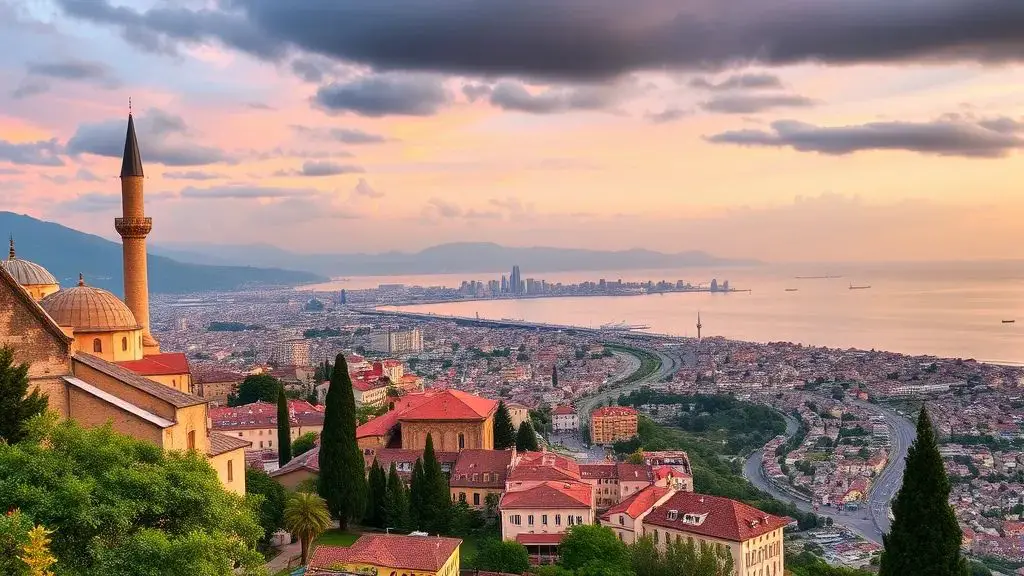Hey there! Looking for Lebanese last names? You know what’s really cool about them? Each one’s like a little story – kind of like how your grandma’s recipes tell you about your family history. These names are packed with amazing tales about Lebanon’s past and all the different people who’ve called it home over the centuries.
You’re probably wondering how these names came to be, right? Well, grab a coffee (or maybe some Lebanese tea!) and let me tell you all about them. It’s actually pretty fascinating – you’ve got names that come from old jobs (like the village blacksmith), places people lived, and even some really old religious connections.
Think of Lebanese last names like those old family photos you find in your parents’ album – each one’s got a story to tell, and once you know what to look for, they can tell you so much about where someone’s family came from. Some families were craftsmen, others were religious leaders, and some were just known for being super kind to their neighbors.
Want to know what these names actually mean? I’ve got some really interesting ones to share with you. Trust me, by the time we’re done, you’ll be spotting the stories behind Lebanese names everywhere you go!
Lebanese Last Names
- Khoury (خوري)
- Meaning: Priest or religious leader
- Story: These were the respected religious families
- Status: Super common even today!
- Haddad (حداد)
- Meaning: Blacksmith
- History: Every village’s go-to metalworkers
- Fun fact: Still one of the most popular names in Lebanon
Just like family group names, these next ones show strong connections:
- Ibrahim (ابراهيم)
- Meaning: Father of multitudes
- Used by: Both Christians and Muslims
- Cool fact: Ancient name with biblical roots
- Nassar (نصار)
- Meaning: Helper or victor
- Background: Known for supporting their community
- Notable: Many successful business families
- Aoun (عون)
- Meaning: Helper or assistant
- History: Often community leaders
- Famous for: Strong political connections
- Khalil – “Friend” or “companion” in Arabic.
- Haddad – “Blacksmith” in Arabic.
- Saad – “Happiness” or “fortune” in Arabic.
- El-Khoury – “The priest” in Arabic, often associated with Christian families.
- Najjar – “Carpenter” in Arabic.
- Maalouf – Derived from “ma’loof,” meaning “familiar” or “customary.”
- Abi-Saad – “Father of happiness.”
- Farah – “Joy” or “delight.”
- Sabbagh – “Dyer” or one who dyes fabrics.
- Zein – “Beauty” or “adornment.”
Lebanese Surnames
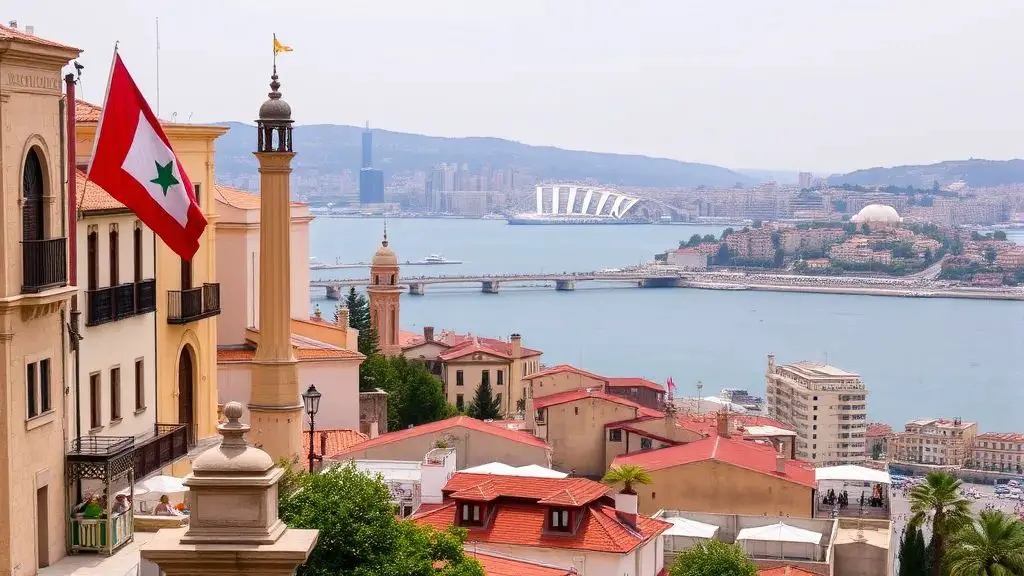
- Sleiman (سليمان)
- Meaning: Solomon – the wise one
- History: Inspired by King Solomon
- Fun fact: Both Christians and Muslims love this name!
- Maloof (معلوف)
- Meaning: The familiar one or trusted friend
- Story: Given to well-known community members
- Interesting bit: Many authors carry this name
- Rahme (رحمة)
- Meaning: Mercy or compassion
- Background: Often given to kind families
- Cool detail: Super popular in mountain villages
Just like social club names, these next ones really bring people together:
- Mansour (منصور)
- Meaning: The victorious one
- History: Often successful merchants
- Notable: Many business leaders today
- Saad (سعد)
- Meaning: Happiness or good fortune
- Story: Believed to bring good luck
- Fun fact: One of the oldest Lebanese names
Common Lebanese Last Names
- Abboud (عبود)
- Meaning: Worshipper or devoted one
- Origin: Ancient Aramaic roots
- Cool fact: Found in almost every Lebanese village
- Moussa (موسى)
- Meaning: Moses – the leader
- Used by: All religious communities
- Interesting bit: Many teachers carry this name
Think of these like powerful team names – they carry weight:
- Sarkis (سركيس)
- Meaning: Head of the church
- Heritage: Armenian-Lebanese connection
- Notable: Many famous artists
Last Names in Lebanon
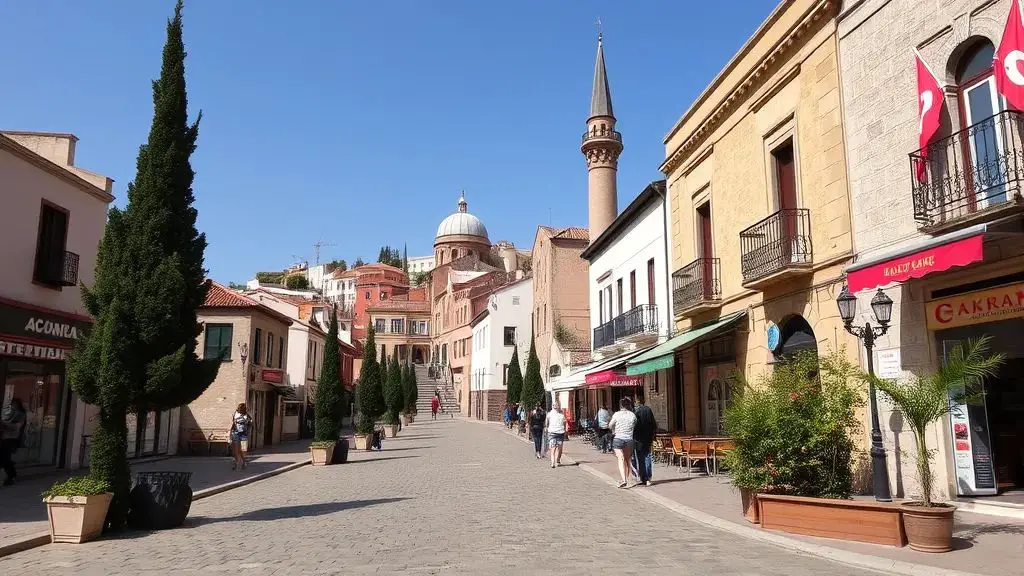
- Khalil (خليل)
- Meaning: Dear friend or companion
- Story: Named after Prophet Ibrahim’s title
- Fun fact: Nearly every town has a Khalil family!
- Dagher (داغر)
- Meaning: The brave one
- History: Often given to warrior families
- Cool detail: Lots of military leaders had this name
You know how cultural team names reflect heritage? Check these out:
- Nahas (نحاس)
- Meaning: Coppersmith
- Background: The skilled metal artists
- Interesting bit: Still make traditional crafts
- Boutros (بطرس)
- Meaning: Peter (the rock)
- Origin: Biblical name
- Notable: Many religious scholars
- Saliba (صليبا)
- Meaning: Cross bearer
- History: Christian heritage
- Cool fact: Common in mountain villages
Male Lebanese Last Names

- Assef (عساف)
- Meaning: Strong as a lion
- Story: Given to brave protectors
- Fun fact: Popular among warriors
- Habib (حبيب)
- Meaning: Beloved or dear one
- Background: Given to cherished community members
- Interesting bit: Many doctors have this name
Just like powerful names, these carry strength:
- Karam (كرم)
- Meaning: Generosity
- History: Known for hospitality
- Notable: Many philanthropists
- Zakharia (زخريا)
- Meaning: God remembers
- Origin: Biblical Zechariah
- Cool detail: Popular in religious families
- Maroun (مارون)
- Meaning: From Saint Maron
- Background: Maronite Christian heritage
- Fun fact: Named after a beloved saint
- El-Hage – “The pilgrim,” often referring to one who has made a pilgrimage.
- Bitar – “Veterinarian” in Arabic.
- Nasrallah – “Victory of God.”
- Antoun – Derived from Anthony, meaning “priceless” or “inestimable.”
- Mouawad – “Rehabilitator” or “restorer.”
- Azar – “Helper” or “supporter.”
- Youssef – From the biblical name Joseph, meaning “God will add.”
- Saliba – “Cross” in Arabic, linked to Christian heritage.
- Barakat – “Blessings.”
- Ghantous – Possibly derived from Greek, often used in Christian families.
Female Lebanese Last Names

Think of these like beautiful group names – they’ve got real elegance:
- Wardeh (وردة)
- Meaning: Rose
- Story: Named after nature’s beauty
- Cool fact: Often given to florist families
- Gemayel (جميّل)
- Meaning: Beautiful one
- History: Associated with grace
- Fun bit: Many artists carry this name
- Nadia (نادية)
- Meaning: Hope or beginning
- Background: Brings good fortune
- Interesting detail: Super popular in coastal areas
- Saade (سعادة)
- Meaning: Happiness
- Story: Believed to bring joy
- Notable: Many performers have this name
- Samaha (سماحة)
- Meaning: Forgiveness/tolerance
- History: Known for wisdom
- Cool fact: Often mediators in villages
- Aoun – “Help” or “support.”
- Bou Daher – “Father of Daher,” a name meaning “appearance” or “manifestation.”
- Rizk – “Provision” or “sustenance.”
- Chidiac – “Eternal” or “immortal.”
- Shammas – “Deacon” or “church servant.”
- Mourad – “Wish” or “desire.”
- Chamoun – A variation of Simeon, meaning “to hear” in Hebrew.
- Nassar – “Protector” or “defender.”
- Habib – “Beloved” or “dear.”
- Sarraf – “Money exchanger” or “jeweler.”
Unique Lebanese Last Names
These are like unique usernames – they really stand out!
- Fakhoury (فاخوري)
- Meaning: The potter
- Story: Ancient craftsmen families
- Fun fact: Still make traditional pottery
- Merhej (مرهج)
- Meaning: The celebrant
- Background: Festival organizers
- Cool detail: Known for hosting gatherings
- Zogheib (زغيب)
- Meaning: Small precious thing
- History: Often jewelry makers
- Interesting bit: Rare but respected name
- Khattar (خطار)
- Meaning: The brave one
- Story: Mountain warrior families
- Notable: Many leaders had this name
- Bassil (باسيل)
- Meaning: The king/brave one
- Origin: From Saint Basil
- Fun fact: Strong in northern Lebanon
- Bou Melhem – “Father of Melhem,” with Melhem meaning “one who heals.”
- Fakih – “Religious scholar” or “jurist.”
- Abou Chacra – “Father of Chacra,” where Chacra means “thankful.”
- Derjani – Likely derived from a place name or a family lineage.
- Baydoun – “White house,” referring to a physical structure.
- Zogheib – “Little one” or “young.”
- Alami – “Universal” or “worldly.”
- Faddoul – “Generous” or “virtuous.”
- Sleiman – From Solomon, meaning “peace.”
- Makarem – “Nobility” or “virtues.”
Wealthy Lebanese Last Names
You know how powerful team names command respect? These names do that too:

- Hariri (حريري)
- Meaning: Silk merchant
- Story: Major business dynasties
- Fun fact: Known for mega-successful businesses!
- Mikati (ميقاتي)
- Meaning: Timekeeper
- Background: Became huge in trading
- Cool detail: Many prime ministers from this family
- Safra (صفرا)
- Meaning: Yellow/gold
- History: Famous banking family
- Interesting bit: Known worldwide in finance
- Auchi (عوجي)
- Meaning: The curved one
- Story: Major real estate developers
- Notable: Big in international business
- Fattal (فتال)
- Meaning: Rope maker
- Background: Turned into business empire
- Fun fact: Now huge in distribution
- Hariri – “Silk merchant.”
- Mikati – Derived from “Miqat,” meaning “appointed time” or “scheduling,” linked to commerce.
- Frem – Derived from Ephraim, meaning “fruitful.”
- Khalaf – “Successor” or “heir.”
- Sfeir – Possibly from “safir,” meaning “ambassador.”
- Saradar – A name linked to landownership or nobility.
- Gemayel – “Beautiful” or “handsome.”
- Touma – From Thomas, meaning “twin.”
- Doumet – “Leader” or “guide.”
- Salameh – “Safety” or “peace.”
Popular Lebanese Last Names
These are like family group names that everyone knows:
- Haddad (حداد)
- Meaning: Blacksmith
- Story: Found in every village
- Cool fact: Most common Lebanese name!
- Khoury (خوري)
- Meaning: Priest
- Background: Religious leaders
- Fun bit: Super respected everywhere
- Aoun (عون)
- Meaning: Helper
- History: Many politicians
- Interesting detail: Strong in Mount Lebanon
- Chamoun (شمعون)
- Meaning: Simon
- Story: Many presidents!
- Notable: Big in Lebanese politics
- Geagea (جعجع)
- Meaning: The brave one
- Background: Mountain families
- Cool fact: Strong community leaders
- Abdallah – “Servant of God.”
- Geagea – “Little shepherd” or related to pastoral life.
- Fares – “Knight” or “horseman.”
- El-Khalil – “The friend” or a title of Abraham in Islamic tradition.
- Abou Faour – “Father of Faour,” with Faour meaning “light.”
- Assaf – “Pure” or “sincere.”
- Nahas – “Copper worker” or “coppersmith.”
- Majdalani – From “Majdal,” meaning “tower” or “fortress.”
- Karame – “Dignity” or “generosity.”
- Matar – “Rain.”
Jewish Lebanese Surnames
These names are like a blend of cultures – kind of like how cultural team names bring different worlds together:
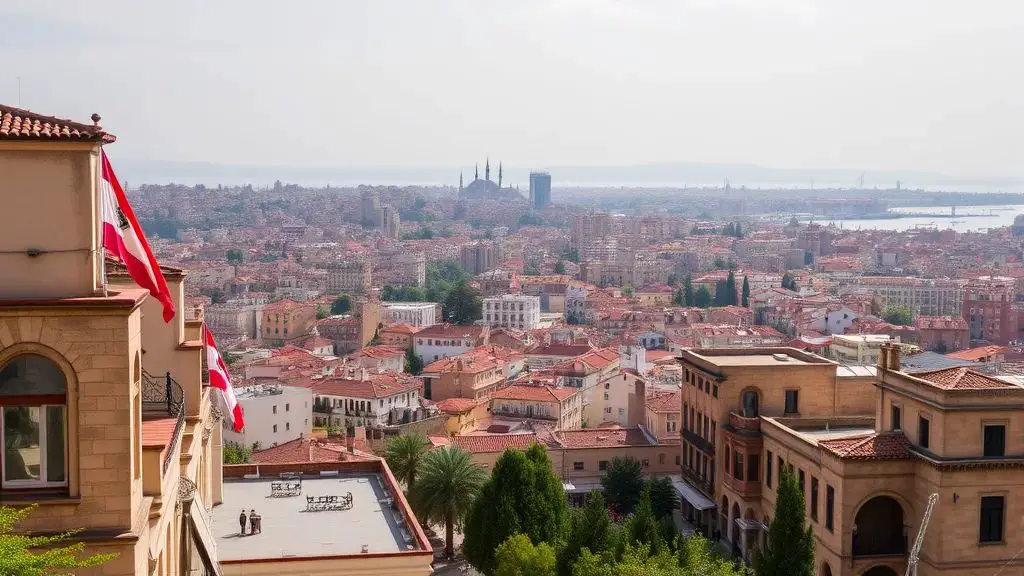
- Srour (سرور)
- Meaning: Joy/happiness
- Story: One of the oldest Jewish families
- Fun fact: Big in jewelry trade!
- Levi (ليڤي)
- Meaning: Joined in harmony
- Background: Ancient priestly family
- Cool detail: Still active in some communities
- Stambouli (ستمبولي)
- Meaning: From Istanbul
- History: Traded along the silk route
- Interesting bit: Great merchants
- Cohen (كوهين)
- Meaning: Priest
- Story: Religious leaders
- Notable: Respected scholars
- Sassoon (ساسون)
- Meaning: Joyful
- Background: Famous traders
- Fun fact: Built huge business empires
- Chetrit – Likely derived from “Sephardi” traditions, meaning “crown.”
- Attiyeh – “Gift” or “present.”
- Anzarut – Of Middle Eastern Jewish origin, meaning unclear but unique to the diaspora.
- Sasson – “Joy” or “happiness.”
- Shams – “Sun.”
- Mizrahi – “Eastern” or from the east.
- Tawil – “Tall” or “long.”
- Naccache – “Engraver” or “carver.”
- Sayegh – “Goldsmith” or “jeweler.”
- Serour – “Happiness” or “delight.”
French Lebanese Last Names
Think of these like unique usernames – they’ve got that special French twist:
- Gemayel (جميّل/Gemayyel)
- Meaning: Beautiful
- Story: French spelling took over
- Cool fact: Major political family
- Ducruet (دوكرويه)
- Meaning: From the cross
- History: French missionaries
- Interesting bit: Mixed heritage
- Pharaon (فرعون)
- Meaning: Pharaoh
- Background: French-influenced spelling
- Notable: Big in banking
- Tabet (تابت/Thabet)
- Meaning: Stable/firm
- Story: French colonial era change
- Fun fact: Many doctors have this name
- Sursock (سرسق)
- Meaning: Palace dweller
- History: French aristocratic ties
- Cool detail: Own beautiful mansions
- Chehab – “Star” in Arabic, often adopted in aristocratic families.
- Deeb – “Wolf.”
- Abi Khalil – “Father of Khalil,” with Khalil meaning “friend.”
- Jreige – Derived from “Georges,” meaning “farmer” or “earthworker.”
- Bou Nassar – “Father of Nassar,” where Nassar means “protector.”
- El-Mir – “The prince” or “leader.”
- Chalhoub – “Charming” or “eloquent.”
- Noujaim – “Stars” or “celestial lights.”
- Dagher – “Attacker” or “raider.”
- Tannous – From Anthony, meaning “priceless.”
Lebanese Last Names Christian
Just like how church group names reflect faith and community, these names carry deep meaning:

- Khoury (خوري)
- Meaning: Parish priest
- Fun story: Every village church had one!
- Cool fact: They were the educated families
- Boutros (بطرس)
- Meaning: Peter (like the apostle)
- Sweet story: Named after St. Peter
- Interesting bit: Super popular in mountain towns
- Hanna (حنا)
- Meaning: John/Grace of God
- Lovely history: Biblical origins
- Did you know? It’s in almost every Christian village!
- Mikhael (ميخائيل)
- Meaning: Who is like God?
- Amazing fact: Named after Archangel Michael
- Fun bit: Many army officers have this name
- Semaan (سمعان)
- Meaning: Simon/The listener
- Beautiful story: From Simon Peter
- Cool detail: Lots of teachers with this name
- Yousef (يوسف)
- Meaning: Joseph (God will add)
- Sweet connection: Named after Jesus’s earthly father
- Fun fact: Popular with carpenters!
- Antoun (انطون)
- Meaning: Anthony/Priceless one
- Nice story: From St. Anthony
- Interesting bit: Many doctors carry this name
- Elias (الياس)
- Meaning: The Lord is God
- Cool history: Prophet Elijah connection
- Fun fact: Common in mountain villages
- Maron (مارون)
- Meaning: My Lord
- Amazing story: Founded the Maronite Church
- Did you know? It’s like Lebanese royalty!
- Stephan (اسطفان)
- Meaning: Crown
- Beautiful history: First Christian martyr
- Cool detail: Many artists have this name
- Saliba – “Cross.”
- El-Khoury – “The priest.”
- Maalouf – “Familiar” or “customary.”
- Chamoun – Derived from Simeon, meaning “to hear.”
- Antoun – Derived from Anthony, “priceless.”
- Habib – “Beloved.”
- Barakat – “Blessings.”
- Rizk – “Provision” or “sustenance.”
- Chidiac – “Eternal” or “immortal.”
- Farah – “Joy” or “delight.”
Lebanese History
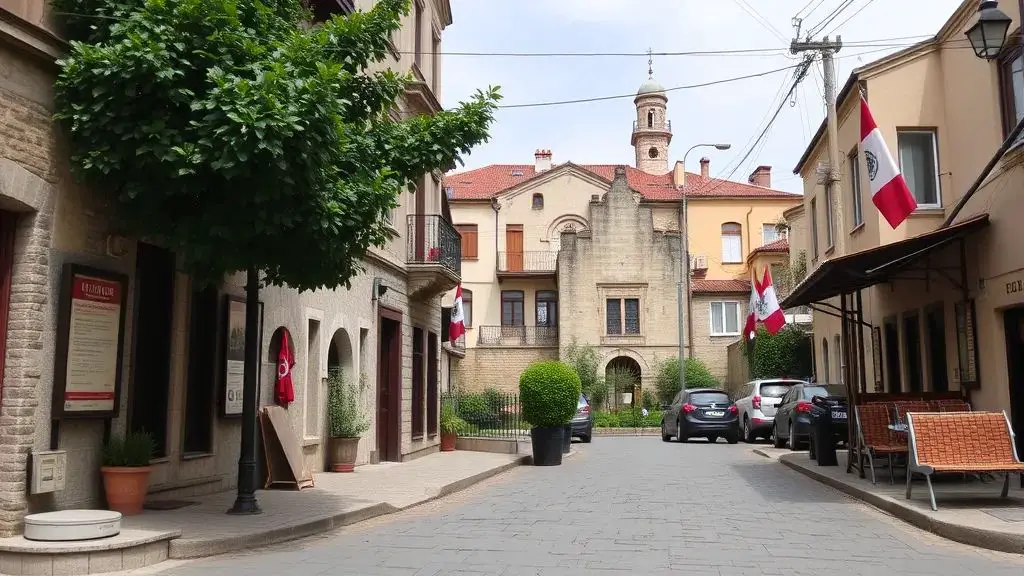
Lebanon’s story is as rich as their famous cedars are tall! This small but mighty country has seen quite a parade of civilizations march through it – from ancient Phoenicians to Romans, Arabs, Ottomans, and French colonizers. Each group left their mark on Lebanese family names, kind of like adding different spices to a delicious dish.
Fun fact: Did you know that some Lebanese last names are actually older than the country itself? Pretty wild, right?
Why Lebanese Surnames Matter
You might be interested to learn that Lebanese surnames are super important in their culture – they’re not just names, they’re like your family’s personal brand! These names can tell you:
- Which village your family came from
- What your ancestors did for work
- Which religious community you belong to
- Who your family’s patriarch was
Think of Lebanese surnames as your family’s VIP pass – they open doors and instantly connect you to a whole network of relationships. It’s actually a lot like how social groups work, which reminds me of how social club names bring people together too!
The Building Blocks of Lebanese Names
Lebanese names typically have a few key parts:
- The given name (first name)
- The father’s name (middle name)
- The family name (surname)
Sometimes you’ll see the prefix “El” or “Al” before the last name – it’s basically the Arabic version of “the,” and it makes the name sound more distinguished, kind of like adding “von” in German names.
Check out some examples:
| Name Structure | Example | Meaning |
|---|---|---|
| Basic Structure | Ahmad Khoury | Ahmad from the Khoury family |
| With Father’s Name | Ahmad Michel Khoury | Ahmad, son of Michel, from the Khoury family |
| With Prefix | Ahmad El-Khoury | Ahmad from the Khoury family |
This naming system is actually pretty similar to how medieval clan names worked in Europe – it’s all about showing your family connections!
The Origins of Lebanese Surnames

Ready to dive deeper into where Lebanese last names come from? It’s like opening a history book filled with fascinating stories – some from ancient times, others from not so long ago. Let’s check out how different cultures shaped these names!
Arabic Influences
The Arab influence on Lebanese surnames is huge – no surprise there! Here are some cool examples:
Common Arabic-influenced names:
- Al-Hassan (meaning “the handsome one”)
- El-Sayyed (meaning “the master”)
- El-Amin (meaning “the trustworthy”)
- El-Hajj (meaning someone who made the pilgrimage to Mecca)
- El-Masri (meaning “the Egyptian”)
Just like how Arabic group team names carry special meanings, these surnames tell us something about the families who first used them.
Christian Heritage
Lebanon’s got a strong Christian community, and that shows up in their surnames too. Think of these names as family badges showing their faith:
Christian-influenced surnames:
- Boutros (from Peter)
- Hanna (from John)
- Sleiman (from Solomon)
- Mikhael (from Michael)
- El-Khoury (meaning “the priest”)
You know how spiritual group names often reflect beliefs? Lebanese Christian surnames work the same way!
Other Cultural Influences
Lebanon’s been like Grand Central Station for different cultures over the centuries. Here’s what they left behind:
Ottoman influence:
- Bacha/Pasha (meaning “high-ranking official”)
- Agha (meaning “master” or “lord”)
French influence:
- Francois (sometimes spelled Frangieh)
- Gerard (sometimes spelled Jerard)
Phoenician heritage:
- Names related to ancient trades like Mallah (sailor)
- Places like Sidawi (from Sidon)
A Special Note About Compound Names

Here’s something cool – some Lebanese families have compound surnames, kind of like how matching couple names work together. They might combine:
- Two family names
- A profession and a place
- A title and a family name
For example: Abou-Sleiman (meaning “father of Sleiman”) or Beit-Hanna (meaning “house of Hanna”)
The Language Mix
One super interesting thing about Lebanese surnames is how they often mix languages. You might see:
- Arabic words with French spellings
- Aramaic names written in Arabic style
- Greek names with Arabic pronunciations
It’s kind of like making a really tasty food fusion – taking the best of different cultures and creating something unique!
Common Types of Lebanese Surnames – What’s in a Name?
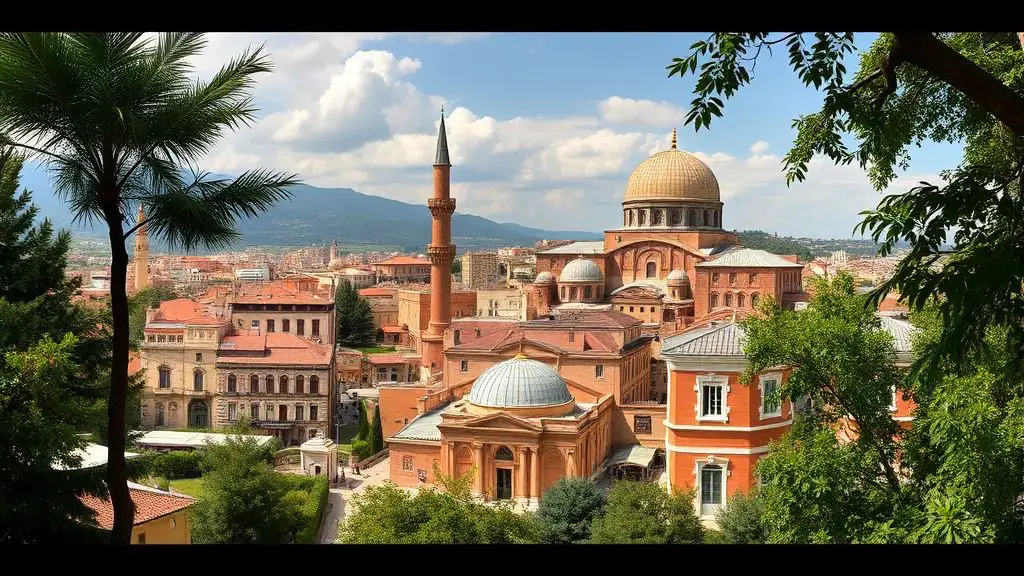
Let’s dig into the different kinds of Lebanese last names! It’s pretty amazing how these names tell us so much about what people’s ancestors did, where they lived, or what they looked like.
Patronymic Surnames (Named After Dad)
These names are basically saying “Hey, this was my dad!” Pretty similar to how family group names work today. Here are some common ones:
- Ibn-Ahmad (son of Ahmad)
- Bin-Yousef (son of Joseph)
- Abou-Zeid (father of Zeid)
- Ben-Saleh (son of Saleh)
Funny enough, this naming style is a lot like how people came up with their team names for kids – keeping it in the family!
Job-Related Surnames
These names are super straightforward – they just tell you what great-great-grandpa did for a living! Some popular ones:
- Haddad (blacksmith)
- Najjar (carpenter)
- Sabbagh (painter/dyer)
- Khoury (priest)
- Mallah (sailor)
Where Are You From? Geographic Surnames
Just like travel group names, these surnames tell you where a family’s roots are:
- Traboulsi (from Tripoli)
- Beiruti (from Beirut)
- Jabali (from the mountains)
- Sahili (from the coast)
Religious Connection
Religion’s a big deal in Lebanon, and lots of surnames show that connection:
- Moussawi (follower of Imam Moussa)
- El-Sheikh (religious leader)
- Deeb (religious student)
- Rahbani (from the word for monk)
What Did They Look Like? Descriptive Surnames
These are kind of like nicknames that stuck around! Similar to how people choose cool words for usernames, these names describe something unique:
- Tawil (tall)
- Abyad (fair-skinned)
- Aswad (dark-haired)
- Jamil (beautiful)
Fun Stories Behind Names
You know what’s really cool? Some Lebanese surnames have amazing stories behind them. Like, I heard about one family named Ghanem (meaning “victor”) because their ancestor won some epic village competition! These stories get passed down through generations, just like family recipes.
Quick tip: If you meet someone with a Lebanese last name, try asking them what it means – most people love sharing their family’s story!
Modern Day Name Games
Here’s something interesting – nowadays, some Lebanese folks are getting creative with their surnames, especially when living abroad. They might:
- Simplify the spelling
- Drop certain prefixes
- Add new elements to make them more unique
It’s kind of like creating unique usernames – keeping the essence while making it your own!
The Most Common Lebanese Last Names You’ll Hear

You know how some last names just pop up everywhere? Let’s talk about the Lebanese surnames you’re most likely to bump into, whether you’re walking down the streets of Beirut or visiting a Lebanese restaurant in New York!
Top Lebanese Last Names and What They Mean
Let me share some of the most popular Lebanese surnames – I bet you’ve heard at least a few of these before!
- Khoury/Khouri
- Means “priest” or “preacher”
- Kind of like how church group names reflect their spiritual connection
- Haddad
- Means “blacksmith”
- One of those names that tells you exactly what the family used to do!
- Ibrahim
- The Arabic version of Abraham
- Super common in both Christian and Muslim families
- Nahhas
- Means “copper worker”
- Pretty cool how it preserves an ancient trade, right?
- Aoun
- Means “helper” or “assistant”
- You might recognize this one from Lebanese politics
The Stories Behind These Names
Let me tell you something interesting – these popular names often come with amazing stories. Take Gemayel for instance. It comes from “jamal” (camel), and the story goes that the family’s ancestor was known for his strength in handling camels. Cool, right?
Here’s a handy table of more common names:
| Last Name | Meaning | Origin |
|---|---|---|
| Nassar | Victory helper | Arabic |
| Maloof | Trusted one | Arabic |
| Abboud | Servant of God | Christian/Arabic |
| Sayegh | Jeweler | Occupational |
| Moussa | Moses | Religious |
Modern Twists on Old Names
These days, Lebanese names are getting some interesting updates, kind of like how modern usernames evolve. You might see:
- Simplified spellings (Khoury becoming Corey)
- Dropped prefixes (El-Khoury becoming Khoury)
- New variations to make them unique
Why These Names Stuck Around
You might wonder why certain names became so popular. Well, it usually comes down to:
- Important families using the name
- The meaning being particularly respected
- Historical events making the name famous
- Religious significance
What Makes Lebanese Surnames Really Special?
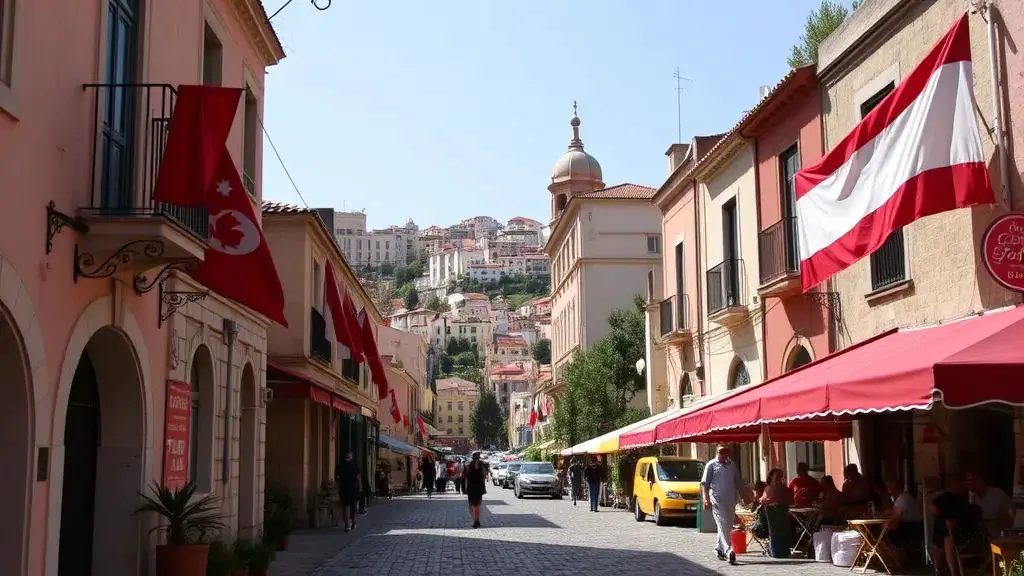
Hey, ready to discover some really cool things about Lebanese surnames? You know how every family has its own special quirks? Well, Lebanese last names have some fascinating features that make them unique!
Those Special Prefixes and Suffixes
So, Lebanese names often start or end with certain bits that tell you more about the family. It’s kind of like having a built-in family history! Let me break it down for you:
Common Prefixes:
- El/Al (means “the”)
- Abu/Abou (means “father of”)
- Beit (means “house of”)
- Ben/Bin (means “son of”)
You know what’s funny? These prefixes work a lot like family clan names – they show who you’re connected to!
When Two Names Become One
Let’s talk about compound surnames – they’re pretty fascinating! Imagine taking two family names and smooshing them together, kind of like making a sandwich. Here are some examples:
- Abou-Hassan (father of Hassan)
- Beit-Shalhoub (house of Shalhoub)
- Dar-Zeid (home of Zeid)
Regional Differences – Same Name, Different Places
Here’s something cool – the same last name might sound different depending on where in Lebanon you are! Like how cultural team names can vary by region, Lebanese surnames do too.
For example:
- Northern Lebanon: Names often end in “-i”
- Southern Lebanon: More likely to keep the “El-” prefix
- Mountain regions: Unique spellings of common names
Fun fact: Sometimes you can tell which village someone’s family is from just by how they spell their last name!
Some Modern Day Changes
These days, Lebanese surnames are getting some modern updates. Think of it like giving your old family recipe a new twist! People might:
- Change the spelling to make it easier to pronounce
- Drop traditional prefixes
- Add new elements to make the name unique
Just like how unique group names evolve with time, Lebanese surnames are adapting too.
A Quick Note About Pronunciation
Here’s a heads up – Lebanese surnames can be tricky to pronounce if you’re not familiar with Arabic sounds.
But don’t worry! Most Lebanese people are super understanding and happy to help you get it right.
It’s all about learning and respecting each other’s heritage, right?
How Lebanese Names Get Passed Down

Let’s talk about how Lebanese families keep their names going through the generations. You know how some family traditions are super important? Well, Lebanese naming customs are definitely one of those big deals!
The Dad’s Name Rules
So here’s how it usually works in Lebanese families – kids get their dad’s last name, pretty much no questions asked. It’s kind of like joining a really exclusive club where your membership card is your last name!
I’ve noticed it’s similar to how family group chats work – there’s this strong sense of belonging and connection through the name.
A quick example:
- Dad: Ahmad Khoury
- Mom: Maria Haddad
- Kids: All get the last name Khoury
How Things Have Changed
Back in the day, Lebanese names were pretty set in stone. But nowadays? Things are getting interesting! Here’s what’s new:
- Some couples are combining their last names
- More women are keeping their maiden names
- Families abroad might modify the spelling
- Some people are picking which version of their family name to use
It’s kind of like how modern group names are more flexible and creative than they used to be.
What’s Happening Today
You’ll love this – Lebanese naming practices are getting a modern makeover! Here’s what’s trending:
- Simplified spellings (making them easier to say in other countries)
- New combinations of traditional names
- Revival of old family names that almost disappeared
Hot tip: Some Lebanese folks abroad have found super creative ways to keep their traditional names while fitting into their new home!
When East Meets West
Here’s something cool – when Lebanese families move to other countries, their names often go on quite a journey:
| Original Name | Common Changes | Why? |
|---|---|---|
| El-Khoury | Corey | Easier to pronounce |
| Abdel-Nour | Abdelnor | Simpler spelling |
| Bou-Ghosn | Boghosian | Local adaptation |
The Special Cases
Sometimes Lebanese names break all the rules! Like when:
- A family has no sons
- Someone wants to preserve a mother’s family name
- There’s a special family tradition
- A person decides to change their name legally
It’s kind of like those unique usernames that don’t follow the usual patterns – sometimes breaking tradition works out great!
Lebanese Names Around the World
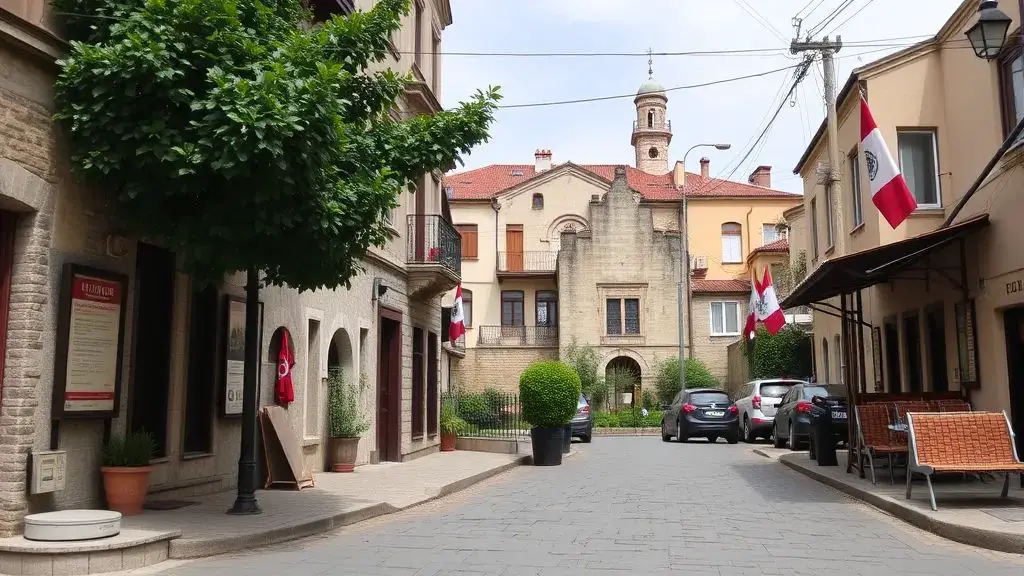
You know what’s really cool? Lebanese names have literally traveled all over the world! Let me tell you about how these names have popped up everywhere from Brazil to Australia, picking up some interesting changes along the way.
When Names Travel
Picture this: Your family moves to a new country, and suddenly nobody can pronounce your last name. What do you do? Well, Lebanese families have dealt with this in some pretty creative ways:
In North America:
- El-Khoury became Corey
- Boutros turned into Peters
- Semaan changed to Simon
It’s kind of like when you’re picking a social club name – you want something that feels authentic but also fits in!
Keeping It Real
But here’s something amazing – lots of Lebanese families have stuck to their original names, no matter what. They’re like, “This is who we are, and we’re proud of it!” And you know what? That’s pretty awesome.
Some ways they’ve kept their heritage alive:
- Teaching kids how to spell and pronounce their name properly
- Sharing family stories about the name’s meaning
- Using traditional names for family group chats
- Celebrating their name’s history at family gatherings
Fun Stories From Around the Globe
Let me share some real-world examples (with names changed for privacy):
“My grandfather moved to Mexico in the 1940s. His name was El-Hajj, but everyone called him ‘Señor Elias.’ Now that’s what’s on our family documents!”
“We’re Lebanese-Australians, and our name went from Abou-Ibrahim to just Ibrahim. Makes ordering coffee way easier!”
The Name Game in Different Places
Check out how Lebanese names adapt around the world:
| Country | Name Change Example | Local Influence |
|---|---|---|
| Brazil | Haddad → Hadad | Portuguese spelling |
| France | Khoury → Khouri | French pronunciation |
| Canada | Abou → Aboo | English phonetics |
| Argentina | Sleiman → Suleman | Spanish influence |
Making It Work
These days, Lebanese people abroad are getting super creative with their names. Some cool trends I’ve noticed:
- Keeping the original spelling but accepting different pronunciations
- Using nicknames in daily life but legal documents stay traditional
- Creating new spellings that capture the original sound
It’s a bit like choosing unique usernames – finding that perfect balance between old and new!
Why Lebanese Names Matter So Much
You know how some things just make you feel connected to who you really are? That’s exactly what Lebanese surnames do for families. Let me tell you why these names are way more than just words on a passport!
Family Pride Is Real!
Think of Lebanese surnames like your family’s personal brand. They’re kind of a big deal! Each name has this amazing backstory that makes people go, “Wow, that’s pretty cool!”
“I always smile when people ask about my last name,” a friend once told me. “It means ‘wise one’ in Arabic, and believe me, my family never lets me forget I need to live up to that!”
Names Tell Your Story
Lebanese names are like little history books. They might tell you:
- Which village your great-grandparents came from
- What your ancestors did for work
- Which faith community you belong to
- Who were the important people in your family tree
It’s a bit like those family alliance names – they connect you to something bigger than yourself.
The Religion Connection
Here’s something interesting – in Lebanon, your last name often gives people a hint about your faith. But you know what’s cool? Many families are proud of this connection! It’s part of their identity, kind of like having a spiritual group name.
Some examples:
- Names starting with “El-Khoury” often come from Christian families
- “El-Sheikh” is usually from Muslim families
- Some names are shared across all religions!
Modern Times, Ancient Names
These days, Lebanese names are doing something really interesting. They’re like bridges between:
- Old traditions and new ways
- Different cultures and countries
- Past and future generations
Why Names Still Matter
Even with all our modern technology and global connections, Lebanese surnames still mean a lot. They help people:
- Feel connected to their roots
- Share their family stories
- Keep traditions alive
- Build strong communities
Tracing Your Lebanese Family Roots – Where Do You Start?
Hey! So you want to dig into your Lebanese family history? I get it – there’s something super exciting about uncovering where your family came from. Let me walk you through how to get started!
First Stop: Talk to Your Family!
You know what’s funny? Sometimes the best information isn’t in any database – it’s in your aunt’s stories during family dinner! Before you dive into research:
- Chat with older relatives
- Look through old family photos
- Ask about any documents they’ve kept
- Listen to those family stories (even the wild ones!)
Where to Look for Records
Looking for Lebanese family records can be tricky – like trying to solve a puzzle where some pieces are hidden! Here’s where you might find some clues:
In Lebanon:
- Religious institutions (churches, mosques)
- Village records
- Family history books
- Local government offices
Heads up: Some records got lost during wars or weren’t kept super organized. Don’t get discouraged if you hit some dead ends!
Common Research Challenges
Let me be real with you – you might run into some bumps along the way:
- Names changing spellings (a lot!)
- Missing records
- Language barriers
- Multiple families using the same name
It’s kind of like those detective team names – you need to be a bit of a sleuth to figure things out!
Tips and Tricks That Actually Work
Here’s what I’ve learned works best:
- Start with what you know
- Write everything down
- Look for patterns in names
- Connect with other Lebanese families
- Join online research groups
Online Resources That Help
While you can’t find everything online, these places can be super helpful:
- Lebanese genealogy forums
- Social media groups about Lebanese heritage
- Digital archives (when available)
- Family tree websites
Think of it like joining those networking group names – connecting with others can lead to amazing discoveries!
Making Your Own Family Tree
Want to organize what you find? Try making a family tree! Here’s a simple way to start:
- Write down names you know
- Add birth places if you have them
- Note any name changes
- Include family stories
Keeping Lebanese Names Alive – Looking Back and Moving Forward
You know what’s amazing about Lebanese names? They’ve stuck around through thick and thin, wars and peace, old times and new. Let’s wrap up our journey through these fascinating family stories!
More Than Just Names
Think about it – these names have survived:
- Ancient empires
- Modern migrations
- Technology changes
- Global moves
That’s pretty incredible, right? It’s like how your favorite family recipe gets passed down – it might change a tiny bit, but the heart of it stays the same.
Why These Names Still Matter Today
I was chatting with a Lebanese friend the other day, and she said something that really stuck with me: “My last name is like carrying a piece of home wherever I go.” How beautiful is that?
These names help people:
- Stay connected to their roots
- Share their story with others
- Feel proud of where they came from
- Pass something special to their kids
Keeping the Tradition Going
So how do modern Lebanese families keep their naming traditions alive? Here are some cool ways:
“We made a family WhatsApp group with our last name,” one person told me. “Every time someone has a baby, we share the meaning of our name with them. It’s like our own little family history lesson!”
Think of it like those family support group names – it’s all about keeping connections strong!
The Future of Lebanese Names
Want to know what’s super exciting? Lebanese names are evolving in really interesting ways:
- Young people are proud to explain their names
- Families are finding creative ways to preserve traditions
- Communities are documenting their name histories
- Social media is helping connect people with the same names
A Few Last Thoughts
You know what makes Lebanese names so special? They’re like little time machines that connect us to the past while moving into the future. Whether you’re:
- Tracing your family history
- Picking a name for your baby
- Just curious about your Lebanese friends’ names
There’s always something new to learn and appreciate!
Remember: Every Lebanese name has a story. Sometimes it’s about a brave ancestor, sometimes it’s about a family trade, and sometimes it’s just about love for family and tradition.
Want to Learn More?
If this stuff interests you, why not:
- Ask your Lebanese friends about their names
- Look up the meaning of Lebanese names you hear
- Share your own name story
- Keep these beautiful traditions alive
Greetings, I’m Alex – an expert in the art of naming teams, groups or brands, and businesses. With years of experience as a consultant for some of the most recognized companies out there, I want to pass on my knowledge and share tips that will help you craft an unforgettable name for your project through TeamGroupNames.Com!

